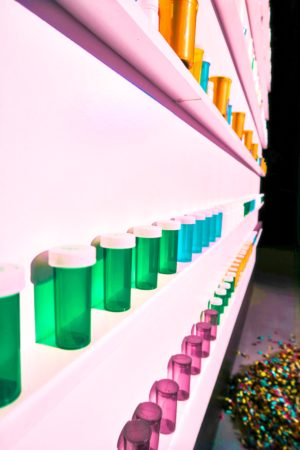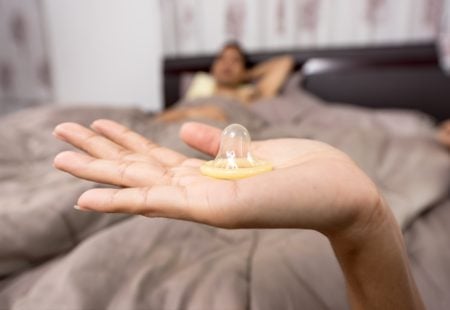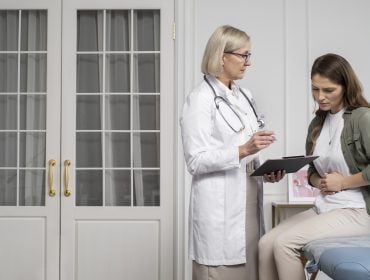FAQs About STDs
There is a lot of mystery shrouding sexually transmitted diseases and infections (STDs and STIs). We’ve compiled a list of frequently asked questions regarding STDs, and provide answers to them to help spread knowledge and stop the spread of these diseases.
How do I know if I have an STD?
You probably won’t! Many STDs do not show any signs or symptoms, and those that do often display symptoms that mimic other illnesses. It is important to get tested so that you know your status and are not unknowingly transferring STDs to others. To complicate matters more, you can have multiple STDs at once, making it very tough to diagnose without testing. The only way to know for sure if you do or don’t have an STD is by getting tested.
I have never had sex, could I have an STD?
Yes. You can get STDs as a virgin. Some STDs are spread by sharing needles, from unsterilized tattooing equipment, from kissing, or skin-to-skin contact. Sometimes, STDs affect areas of the body that aren’t sexual— Herpes can be spread by kissing or shedding skin cells that contain it, and syphilis can be spread by making out with someone who has a syphilis sore in their mouth. For more information, check out: Ways you can get STDs without having sex.
I have only given or received oral sex, could I have an STD?

Absolutely! Performing oral sex on someone with genital herpes can result in you getting oral herpes. Alternatively, receiving oral sex from a partner with oral herpes can give you genital herpes. If you perform oral sex on someone with gonorrhea, you can get the infection in your throat. You can also get gonorrhea and chlamydia infections in your eye if you’ve touched parts of the body with either infection and then touch your eye. Some strains of HPV, human papillomavirus, can infect the mouth and throat, too.
Is there a cure for STDs?
Some STDs have a cure, others do not. STDs like hepatitis A, hepatitis B, and certain strains of HPV are preventable via vaccine if the immunization is received prior to getting these STDs. Sexually transmitted diseases that are caused by bacteria are curable, especially when treated early on. Bacterial STDs include trichomoniasis (trich), chlamydia, gonorrhea and syphilis. Viral STDs are currently not curable, but all viral STDs have some sort of treatment available. Viral STDs include HIV/AIDS, hepatitis A, B and C, herpes simplex 1, herpes simplex 2, and HPV.
Will an STD affect my pregnancy/baby?
Some STDs can seriously affect a fetus during pregnancy or a baby during childbirth. Visit our blog post here for a comprehensive look at How STDs Can Affect Your Baby and Pregnancy.
If I had unprotected sex, when can I get STD tested?
You can get tested the next day if you like, but please know that it can take days or weeks after exposure for the bacteria or virus to be in your body at a level noticeable by testing. You should get retested in case you initially got tested too soon. For a full chart on when to get tested for specific STDs after unprotected sex, go here.
How can I prevent STDs?
Knowing your status and your partner’s status is the key to preventing STDs if you are (or are considering being) sexually active. Getting STD tested truly is the only way to confirm you and your partner’s STD status, especially since so many cases do not have symptoms appear. After learning both yours and your partner’s sexual health status, you can practice safer sex by using condoms every time you have sex, or using dental dams or condoms during oral sex. Limiting the number of partners you have and only having sex with someone who is only having sex with you also helps reduce risk.
Medically Reviewed by J. Frank Martin JR., MD on September 20, 2023
Secure and Confidential
STD testing services
The fastest results possbile - available in 1 to 2 days

Tagged
Categorized As
Author: Nick Corlis
Nick Corlis is a writer, marketer, and designer. He graduated from Texas State University in San Marcos, Texas, with a degree in Digital Communications. Nick is proud to be able to help eliminate the stigma of STD testing through his writing and is always trying to advocate the importance of your sexual health. Before STDcheck, his favorite way to develop his writing skills was by accepting various writing jobs in college and maintaining multiple blogs. Nick wears many hats here at STDcheck, but specifically enjoys writing accurate, well-researched content that is not only informative and relatable but sometimes also contains memes. When not writing, Nick likes to race cars and go-karts, eat Japanese food, and play games on his computer.




